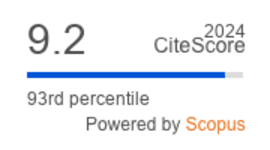Sustainable Functional Nanofoods: Formulation Opportunities and Application Challenges
DOI:
https://doi.org/10.36877/pmmb.a0000456Abstract
Nanotechnologies are an emerging scientific field that refers to the science of nanosized materials and structures. They can provide numerous innovative opportunities within the food industry, with applications in areas such as food production, processing, packaging, preservation, agriculture, water treatment, etc. In the food industry, organic or mineral nanoparticles measuring between 1 and 100 nanometers demonstrate significantly improved properties —often enhanced by a factor of ten— compared to conventional materials. Nevertheless, the use of materials at the nanoscale can also present challenges related to potential impacts on human health, the environment and regulatory challenges, akin to those faced by other emerging technologies. The integration of nanofoods requires careful evaluation of the risks associated with new products. Nonetheless, the benefits of food nanotechnology are gaining momentum. Regulations must become more stringent regarding the use of nanomaterials or nanofoods, particularly concerning safety protocols. The modernization of food production still has to face some drawbacks of the new approaches to be implemented for routine production. Scientific research must provide the expected solutions to these limitations for making functional nanofoods more sustainable.
Downloads
Published
How to Cite
Issue
Section
License
Copyright (c) 2024 Abdelkarim Guaadaoui, Maryem El Yadini, Imane Himri, Ilhame Bourais, Adil El Yadini, Jihane Oumato, Noureddine El Omari, Lamiae Belayachi, Abdelhakim Bouyahya, Abdellah Hamal

This work is licensed under a Creative Commons Attribution-NonCommercial 4.0 International License.
Author(s) shall retain the copyright of their work and grant the Journal/Publisher right for the first publication with the work simultaneously licensed under:
Creative Commons Attribution-NonCommercial 4.0 International (CC BY-NC 4.0). This license allows for the copying, distribution and transmission of the work, provided the correct attribution of the original creator is stated. Adaptation and remixing are also permitted.

This broad license intends to facilitate free access to, as well as the unrestricted reuse of, original works of all types for non-commercial purposes.
The author(s) permits HH Publisher to publish this article that has not been submitted elsewhere.



.png)

.jpg)
